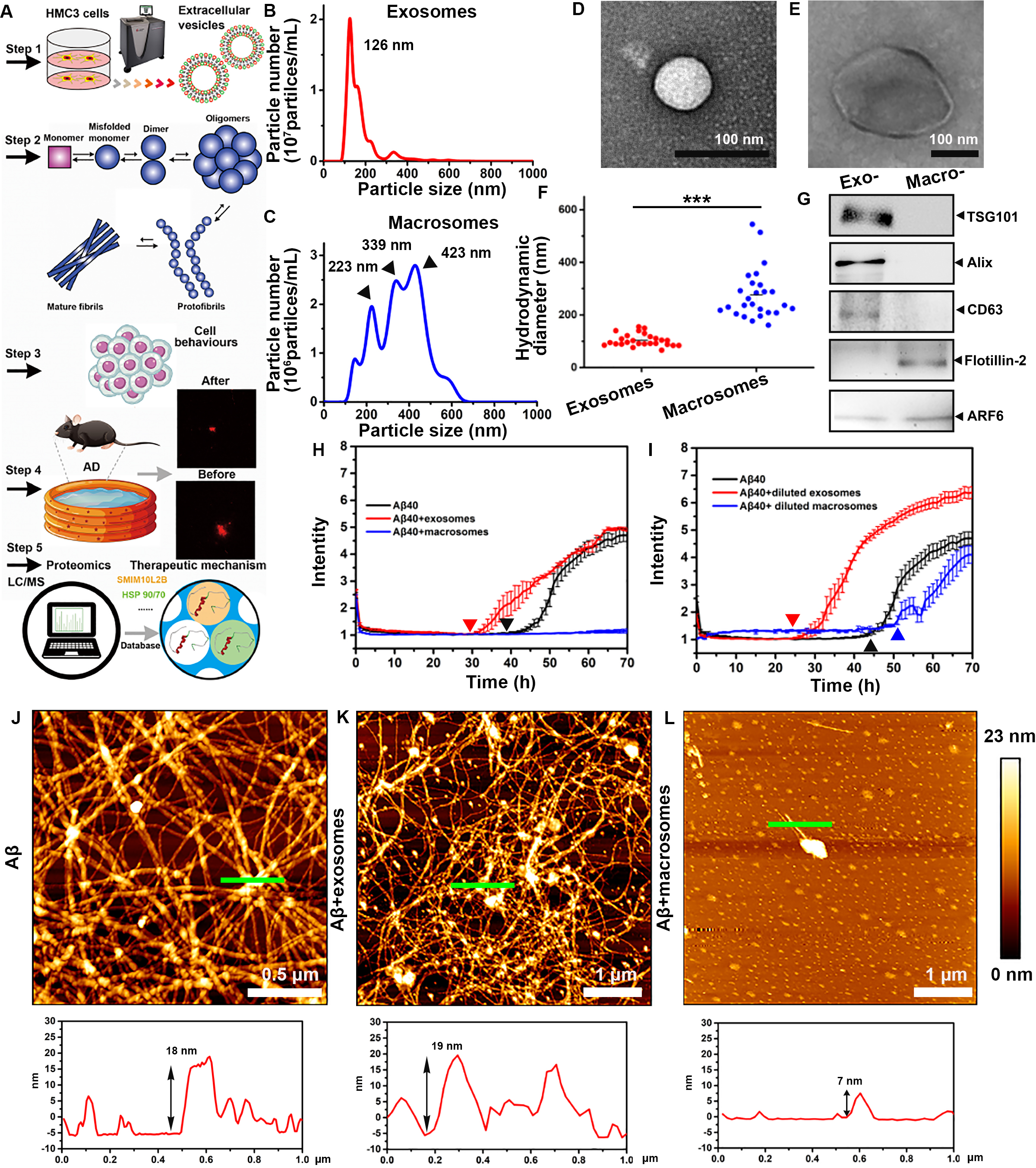Secreted endogenous macrosomes reduce Aβ burden and ameliorate Alzheimer’s disease
Time:2023-05-27 09:50 Author:Cunli Wang
Cunli Wang, Yiming Yang, Xiaoyu Zhang, Zhenqiang Shi, Huiling Gao, Manli Zhong, Yonggang Fan, Hongyan Zhang, Bo Liu*, and Guangyan Qing*
Science Advances 2023, 9, eade0293.
Innovative therapeutic strategies are urgently needed for Alzheimer’s disease (AD) due to the increasing size of the aging population and the lack of effective drug treatment. Here, we report the therapeutic effects of extracellular vesicles (EVs) secreted by microglia, including macrosomes and small EVs, on AD-associated pathology. Macrosomes strongly inhibited β-amyloid (Aβ) aggregation and rescued cells from Aβ misfolding–induced cytotoxicity.
Furthermore, macrosome administration reduced Aβ plaques and ameliorated cognitive impairment in mice with AD. In contrast, small EVs slightly promoted Aβ aggregation and did not improve AD pathology. Proteomic analysis of small EVs and macrosomes revealed that macrosomes harbor several important neuroprotective proteins that inhibit Aβ misfolding. In particular, the small integral membrane protein 10–like protein 2B in macrosomes has been shown to inhibit Aβ aggregation. Our observations provide an alternative therapeutic strategy for the treatment of AD over conventional ineffective drug treatments.
